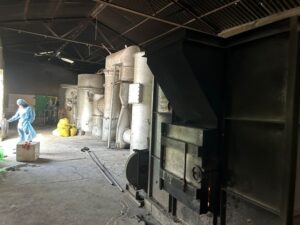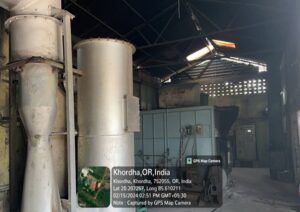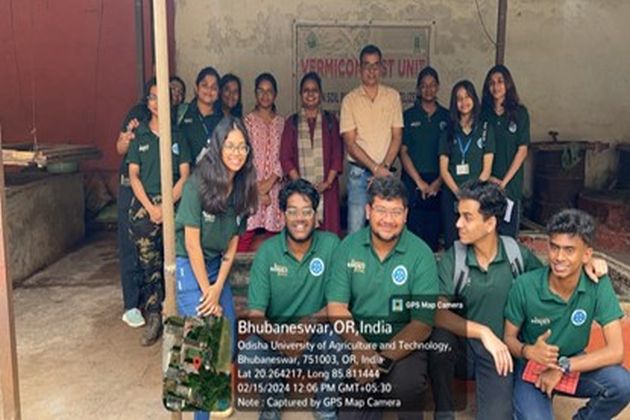Faculty Incharge – Dr. Prof. Elizabeth Abba
Subject – Solid Waste Management
Date – 15th February 2024
Student attendees – Maryam Asad, Mudeet Jain, Siddhant Das, Anandini Mohanty, Arpita Elise Edgar, Anushka Sahu, Ajna Silla, Aarya Chakraborty, Garima Sahu, Rhea Sharma, Swayamdeep Panda, Sutapa Tanushree Behera
The 2nd year students of BSc. (Hons.) Sustainable Development and BSc. (Hons.) Environmental Science of School of Sustainability, XIM University, Bhubaneswar went on a field trip on 15th February 2024 to gain knowledge about various aspects of Solid Waste Management. The students surpassed the walls of conventional classroom instruction, immersing themselves in a hands-on education that significantly altered their comprehension. They proceeded via vermicomposting facilities, recycling centres, and biomedical incineration centres using curiosity as their compass and eagerness as their fuel. Every stop provided a fresh perspective. They learned the value of sustainable methods in protecting our environment in addition to seeing the intricate details of solid waste management firsthand through interactive experiences and thought-provoking conversations with experts.
Location – Odisha University of Agriculture and Technology
Time – 10:15 AM
The field trip to the Odisha University of Agriculture and Technology’s (OUAT) vermicomposting facility proved to be an enriching experience for the students, fostering a deep understanding of sustainable waste management practices, particularly vermicomposting. Upon arrival, they were greeted by the sight of meticulously organized composting beds teeming with earthworms diligently breaking down organic matter. Guided by Prof. Narayan Panda, Ms. Shatrupa Dutta, and Mr. Shrinivas bhaina , the students delved into the intricacies of vermicomposting, learning about the symbiotic relationship between the earthworms and microorganisms, which transform organic waste into nutrient-rich compost.
Through hands-on activities, such as handling earthworms, analysing the vermicompost the students gained practical skills essential for implementing vermicomposting systems. Moreover, engaging discussions shed light on the environmental benefits of vermicomposting, including reduced greenhouse gas emissions, waste to wealth, ease of access, different types of species of earthworms and improved soil health.
Witnessing the vermicomposting process in action not only deepened the students’ comprehension of sustainable waste management but also inspired a sense of responsibility towards environmental conservation. Ms. Arpita Elise Edgar delivered the Vote of Thanks and Prof. Elizabeth Abba presented a memento as a gesture of appreciation.
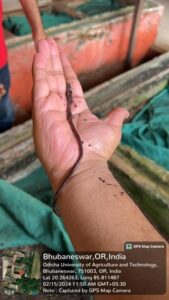


Location – EcoKart Technology Pvt. Ltd.
Time – 1:15 PM
The students gained a thorough understanding of the complex procedures involved in recycling plastic and e-waste from their visit to Ecokart’s recycling plant. This enrichment of information helped them develop a strong appreciation for sustainable waste management techniques. Students were welcomed by committed staff members Mr. Ashutosh Sahu, Mr. Prakash Mishra and Mr. SK Behera upon arrival, who set the tone for an engaging educational experience.
Tour of the facility explained the path taken by waste plastics and electrical devices, from collecting to sorting, breaking down, and finally recycling. The urgent need for safe disposal of plastic and electronic garbage was brought up in lively talks, which also highlighted the harm that improper disposal may do to ecosystems and public health.
Along with being introduced to the world of plastic and e-waste recycling, students at Ecokart’s recycling plant also had the rare chance to see a water testing laboratory accredited by the NABET. As they entered the lab, students were met by a plethora of advanced tools and apparatus aimed at evaluating the water quality. They observed how every instrument has a distinct function in the analysis of several water quality characteristics, like turbidity, pH levels, dissolved solids, and the presence of contaminants such organic pollutants and heavy metals.
Students had a stronger knowledge of the significance of monitoring water quality in protecting public health and maintaining ecosystems through interactive activities. They also understood how important it was to follow regulations to guarantee effective methods of water management and prevent pollution of the water supply. Students left with a deep awareness of their role in promoting sustainable consumption as the visit came to an end. Mr. Swayamdeep Panda delivered the Vote of Thanks and Prof. Elizabeth Abba presented a memento as a gesture of appreciation.
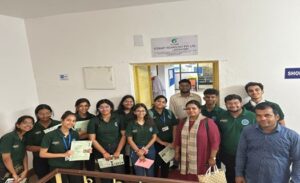
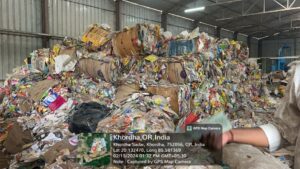
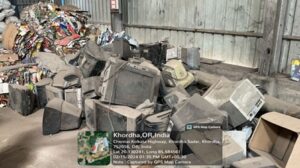
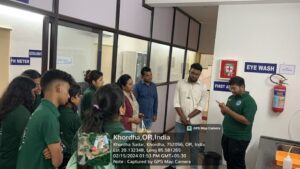
Location – Sani Clean Pvt. Ltd.
Time – 2:30 PM
Students’ comprehension of safe and effective biomedical waste elimination techniques was improved by the tour to Sani-clean’s facility, which provided them with a thorough understanding of the biomedical waste incineration process.
Students were introduced to the various steps of the incineration process under the guidance of Mr. Pramod. They saw how biological waste is meticulously decided on before being placed into the incinerator for supervised combustion. This included infectious items, sharps, and pharmaceutical waste. A thorough explanation of the incineration process was given, with a focus on how it eliminates infections and lowers the amount of hazardous waste produced.
The opportunity to observe essential machinery, such as the primary and secondary combustion chambers and pollution control tools like scrubbers and filters, in action was provided to the students. They discovered how crucial it is to keep everything running at peak efficiency to guarantee full combustion and reduce the number of dangerous pollutants released into the air.
Having in-depth conversations clarified the legal requirements and safety precautions controlling the combustion of biomedical waste. By securely disposing of hazardous biomedical waste, incinerators play a vital role in safeguarding both the environment and public health. This was made evident to students, and they gained a deeper understanding into the world of waste treatment. Ms. Maryam Asad delivered the Vote of Thanks and Prof. Elizabeth Abba presented a memento as a gesture of appreciation.
